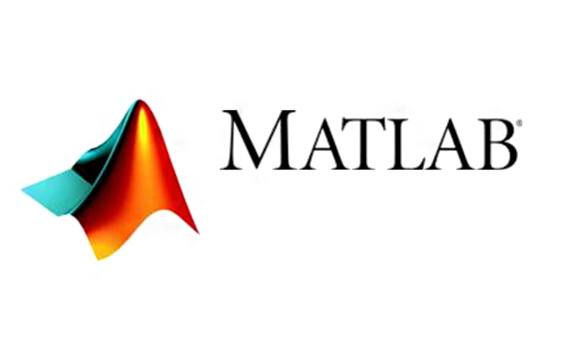- Trainer/in: Florian Eberhardt
- Trainer/in: Caroline Geisler
- Trainer/in: Martin Stemmler
Content: The course examines the behavioral effects and neuropharmacological mechanisms of action of the major types of psychoactive drugs. The initial lectures will introduce the principles of pharmacology and the neurotransmitter systems involved in the effects of psychoactive drugs. Subsequent lectures will focus on the neuropharmacology of specific classes of psychoactive drugs including alcohol, nicotine, caffeine, marijuana, opiates, amphetamines and psychedelics. Later lectures will evaluate the use of drugs in the treatment of psychiatric disorders, such as anxiety disorders and schizophrenia. Grades will be based on one final exam.
Learning outcome: Participants will learn the basics of neuropharmacology and understand how psychoactive drugs affect neuronal processing and behavior. Students should be able to answer these questions after completing the course: How is our behavior affected by these drugs? What are the neuropharmacological mechanisms of drug action? What insights do drug studies provide us about normal and abnormal brain function?
- Trainer/in: Florian Eberhardt
- Trainer/in: Dustin Fetterhoff
- Trainer/in: Florian Eberhardt
- Trainer/in: Stefan Häusler
- Trainer/in: Andreas Herz
- Trainer/in: Florian Eberhardt
- Trainer/in: Caroline Geisler
- Trainer/in: Florian Eberhardt
- Trainer/in: Caroline Geisler
This is an introductory course to the programming suit MATLAB. We will begin with the very basics, and therefore prior knowledge in programming is not required. Course schedule: Tuesdays and Wednesdays from 13:00 -17:00.

- Trainer/in: Florian Eberhardt
- Trainer/in: Stefan Häusler
Das Modul vermittelt elementare Grundkenntnisse über Computeraufbau, Betriebsysteme, Programmiersprachen, und Computer-Netzwerke. In der Übung werden grundlegende Sprachelemente und Algorithmen anhand von Beispielen aus der „Computational Biology“ veranschaulicht.
- Trainer/in: Katharina Bracher
- Trainer/in: Stefano Ceolin
- Trainer/in: Florian Eberhardt
- Trainer/in: Wolfgang Enard
- Trainer/in: Dustin Fetterhoff
- Trainer/in: Susanne Franssen
- Trainer/in: Sonja Grath
- Trainer/in: Andreas Herz
- Trainer/in: Christian Leibold
- Trainer/in: Julia Mayer
- Trainer/in: Michael Menden
- Trainer/in: Richard Merrill
- Trainer/in: Dirk Metzler
- Trainer/in: Thomas Nägele
- Trainer/in: Korbinian Schneeberger
- Trainer/in: Martin Stemmler
- Trainer/in: Raúl Wijfjes
- Trainer/in: Jochen Wolf
- Trainer/in: Florian Eberhardt
- Trainer/in: Caroline Geisler
- Trainer/in: Florian Eberhardt
- Trainer/in: Caroline Geisler
- Trainer/in: Kay Thurley
- Trainer/in: Florian Eberhardt
- Trainer/in: Caroline Geisler
This is an introductory course to the programming suit MATLAB. We will begin with the very basics, and therefore prior knowledge in programming is not required. Course schedule: Tuesdays and Wednesdays from 13:00 -17:00.

- Trainer/in: Florian Eberhardt
- Trainer/in: Stefan Häusler
The course consists of lectures and programming practicals. Students will need to present the outcome of the practical work and take a written exam in the end.
The following is copied from LSF:
Content: The lecture builds on WP4 and WP5 and aims to provide an overview of important advanced data-analysis methods derived from neuroscientific principles and/or applied in neuroscience. The following topics will be covered: Perceptron and linear separability, logistic regression, cross validation, multilayer networks, backpropagation, empirical risk minimization, regression, density estimation, regularization, support-vector machines, optimization with constraints, kernel trick, bootstrapping, clustering, Bayesian networks, hidden Markov models, dimensionality-reduction techniques, time-series-analysis methods (multitaper estimators, wavelet decomposition, multivariate spectral estimators, hybrid time series), circular statistics.
Learning outcomes: The students will be able to understand the functioning and applicability of important advanced data-analysis methods derived from neuroscientific principles and/or applied in neuroscience, and be able to interpret results derived with these methods.
- Trainer/in: Christian Leibold
- Trainer/in: Anton Sirota
- Trainer/in: Caroline Geisler
- Trainer/in: Andreas Herz
- Trainer/in: Emma Müller-Seydlitz